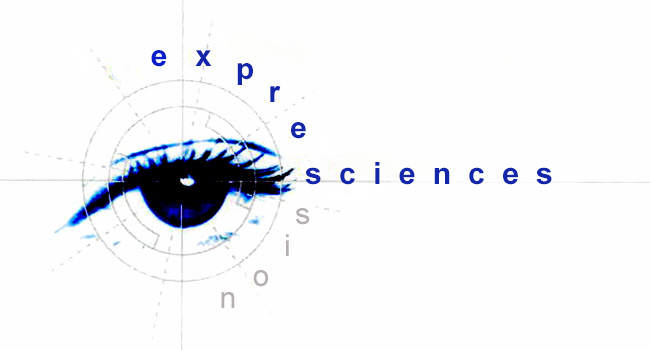BIOVISION 2015 : coup de projecteur sur les projets santé financés par le PIA
Avec un ancrage historique fort dans le domaine de la santé, Lyon offre un socle sur lequel on retrouve aujourd’hui toutes les disciplines phares illustrées par les objets du Programme d’Investissement d’Avenir (PIA) : en immunothérapie & vaccins (BioAster, Ecofect…),Cancérologie (DEVweCAN, Phenocan, Calym…), Neurosciences et neurologie (Cesame, Lili, Cortex, OFSEP…) ainsi qu’en Cardiologie & nutrition (OPeRa).
L’occasion d’afficher l’excellence scientifique et le potentiel économique à travers le film « Lyon, Ville Santé » [Scénario/interviews/présentation: Nathaly Mermet – Production : Garage Prod]
Pour répondre à ses ambitieux objectifs, l’initiative française « Investissement pour le futur », dotée de 22 Md€ dédiés à la recherche au niveau national, a labellisé à Lyon des projets Santé de différentes natures :
- 4 Equipex : LILI, IVTV, PHENOCAN, SENS
- 4 Labex : DEVweCAN, ECOFECT, PRIMES, Cortex
- 2 IHU : OPERA et CESAME
- 1 IRT: Bioaster
- 1 Instituts Carnot: CALYM
- 2 initiatives d’excellence : cohorte OFSEP et IDEFI SAMSEI
« Lyon, ville santé »
Lyon est réputée « capitale du vaccin », avec la tradition Pasteur et la dynastie Mérieux, mais aussi « capitale de la greffe » et a vu naître la filière des traitements anti-rejets ainsi que la fabrication de cellules souches, de peau, et organes, etc.
Dans le domaine de l’oncologie, Lyon s’est forgé une réputation de 1er plan mondial pour sa recherche, par exemple dans le domaine du lymphome
Lyon s’affiche aussi comme une école des neurosciences sur les traces du Pr Michel Jouvet
Ou encore comme capitale de la gastronomie renforcée par les travaux de recherche menés au Centre Européen de Nutrition pour la Santé et à l’Institut de Recherche Paul Bocuse.
C’est ainsi sur un terreau riche en sciences et santé que se développent à Lyon des projets d’excellence menés au sein de centres d’excellence :
-
Des « Equipex » = équipements d’excellence (1 Md€) dont 4 à Lyon : LILI, IVTV, PHENOCAN, SENS
-
Des « Labex » = laboratoires d’excellence (1 Md€) dont 4 à Lyon : DEVweCAN, ECOFECT, PRIMES, Cortex
-
Des IHU = instituts hospitalo-universitaires (0,9 Md€) prometteurs dont 2 à Lyon : OPERA et CESAME
-
8 IRT = Institut de recherche technologique (2 Md€) dont 1 seul en santé, à Lyon : Bioaster
-
Des Instituts Carnot (0,5 Md€) dont 1 en santé à Lyon : CALYM
-
Des initiatives d’excellence (7,7 Md€) dont à Lyon la cohorte OFSEP et un IDEFI : SAMSEI à Lyon
-
Un Fond Unique d’Investissement, FUI 1,3 B€) destiné à doter les projets collaboratifs labellisés par les pôles de compétitivité, tel le pôle de compétitivé mondial en sciences de la vie Lyonbiopôle.
L’ensemble des objets du PIA se situent sur la chaîne de valeur allant de la recherche aux soins : pour certains ponctuellement sur un maillon de la chaîne, pour d’autres tout au long de la filière des sciences de la vie, depuis la recherche fondamentale jusqu’aux applications chez l’homme.
Nathaly MERMET
LYON, CITY HEALTH
See the Future Investment Program in Lyon through the film
LYON, CITY HEALTH : Discover/Improve/Valorize/Treat
A film by Nathaly MERMET / Copyright © Garage Productions
Lyon is well-known for being the “vaccine capital”, seeped in the Pasteur tradition and the Mérieux dynasty, but Lyon is also the “transplant capital” where the procedure for anti-rejection treatment, as well as for the creation of stem cells, skin, and organs first came into existence.
In the field of oncology, Lyon has forged a world-leading status for its research, most notably in lymphoma. Lyon is also known as a school for neurosciences, following in the footsteps of Professor Michel Jouvet, or even as the gastronomic capital, a reputation strengthened by work from the European Centre for Nutrition and Health and the Paul Bocuse Research Institute.
Built upon these rich foundations, a plethora of pioneering disciplines are to be found today in the objectives of the Investing for the Future Programme (PIA):
- in immunotherapy and vaccines (BioAster, Ecofect…),
- cancerology (DEVweCAN, Phenocan, Calym…)
- neurosciences and neurology (Cesame, Lili, Cortex, OFSEP…)
- cardiology and nutrition (OPeRa).
In order to meet its ambitious objectives, the French initiative “Investing for the Future”, has given its seal of approval to different Health projects, equipped with 22 billion Euros for national research.
It is within this rich landscape in the sciences and health that high-quality projects are being developed in Lyon’s centres of excellence:
- 4 high quality equipment (Equipex)
- 4 high quality laboratories (Labex)
- 2 university hospital institutes (IHU)
- 1 technology research institute (IRT)
- 1 Carnot institute
- as well as high quality initiatives
The objectives in the Investing for the Future programme encompass both research and treatment on the value chain (for some they are carried out at specified points along the chain, for others throughout the cycle of life sciences, from basic research to human application).
Nathaly MERMET

Article passionnant sur l’importance des sciences dans notre région! Je cliquerai sur certains liens pour en apprendre davantage sur les recherches en question. Pourquoi certains sont-ils indiqués en bleu et d’autres non?
Merci pour ce bon article, si intéressant!
Thank you for any other wonderful post. Where else may just anybody get that kind of information in such a perfect way of writing? I’ve a presentation next week, and I am on the search for such info.
sammydress formal dresses http://www.sammydress.cc/formal-dresses_c89.html